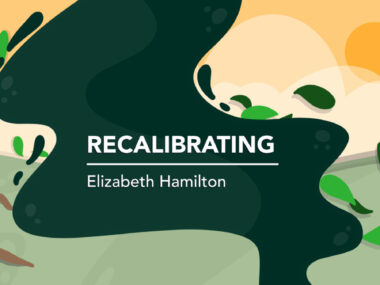Comparing my current and past selves can be difficult
I've learned to set aside the negative, recall the joy, and move forward with life
Written by |

I was transported to a joyful memory while listening to the radio a few days ago. I’m in the home where I grew up, and it’s sunny and cheerful. My sisters, Lisa and Tricia, and I are dancing around the living room, yelling first “I will get by, I will survive” and later “We will get by, we will survive.”
“Touch of Grey” by the Grateful Dead is the song that always transports me. It brings me back to 1987, when the music was just released. At the time, I was 25 and had been diagnosed with Friedreich’s ataxia (FA). Yes, my dancing was awkward and lurching (ataxic gait being one of the symptoms of FA). Still, my sisters and I thought little about appearances, focusing instead on joyfully living in the moment with the music.
As we sang “We will survive,” we thought of the family hardships we’d come through and not of the challenges FA would continue to bring. In the early ’90s, my youngest sister, Tricia, was also diagnosed with FA.
Sadness coexists with the joy of that memory. Today, I use a wheelchair. I can’t walk, let alone dance, even with the rhythm of Frankenstein. I miss dancing. Therefore, when I think of dancing with my sisters, I compare my physical abilities in 1987 with my physical abilities of today and feel a painful sense of loss.
Comparisons can hurt
I’ve heard much about the unhealthy aspects of comparing ourselves with others, especially as our society finds itself in the grips of social media. Living with my degenerative disease, I’m much more likely to compare my past, more physically able self with my less able self of today than I am to compare myself with others.
FA is an incredibly challenging experience, both physically and emotionally. I’ve found that comparing myself with my previous self is one of these challenges. While reflecting on my past abilities and health is natural, constantly measuring myself against who I once was can be disheartening. This comparison can lead to feelings of loss, frustration, and sadness.
Instead of focusing on past abilities, I find it beneficial to concentrate on the present and set realistic goals for the future. Accepting my current and ever-changing situation and finding new ways to adapt leads me to a more positive outlook. I can’t change the fact that I have FA, but I can be part of the effort to cure it. I can cultivate my resilience as laid out by the American Psychological Association.
Moreover, seeking support from others who understand the challenges of living with a degenerative disease can be incredibly valuable. Support groups, therapy, and counseling can provide a safe space to share experiences and coping strategies. According to Victoria University, people who participate in support groups feel less isolated and more empowered to manage their condition.
I don’t belong to an official support group, but I find support from Tricia and my friends who have FA. However you feel comfortable getting peer support, pursue it. By focusing on the present and seeking support, I can navigate the complexities of FA more easily. It’s not easy to live with this disease, but it’s easier with peer support.
The lyrics “We will survive” hold a different meaning for me today. I reflect on how I’ve made it this far in my life with FA. I’m here because of the support of many: family, friends, acquaintances, and even people I don’t know. If I could rewrite those lyrics, I would change them to “We will thrive.” My sisters and I are living happy, fulfilled, and imperfect lives.
While a part of me can fixate on the “I used to be able to dance” part of that memory, I increasingly focus on the joy and togetherness with my sisters that “A Touch of Grey” evokes.
Note: Friedreich’s Ataxia News is strictly a news and information website about the disease. It does not provide medical advice, diagnosis, or treatment. This content is not intended to be a substitute for professional medical advice, diagnosis, or treatment. Always seek the advice of your physician or another qualified health provider with any questions you may have regarding a medical condition. Never disregard professional medical advice or delay in seeking it because of something you have read on this website. The opinions expressed in this column are not those of Friedreich’s Ataxia News or its parent company, Bionews, and are intended to spark discussion about issues pertaining to Friedreich’s ataxia.




Leave a comment
Fill in the required fields to post. Your email address will not be published.